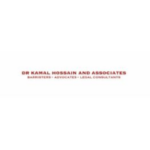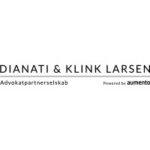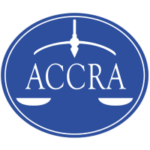-
Is your jurisdiction a common law or civil law jurisdiction?
The Kingdom of Bahrain has adopted a Civil Law system; however, it is more accurately described as a hybrid system that incorporates elements of Islamic Law (Sharia) and Common Law. Its Civil Law foundation is reflected in the codification of key legislation, such as the Civil Code, Commercial Companies Law, and Penal Code, many of which are influenced by Egyptian law, itself derived from the French Napoleonic Code. In line with Civil Law tradition, codified statutes are the primary source of law, and while judicial precedent may be referred to for guidance, it is not binding, as it would be in Common Law jurisdictions. This reflects the Civil Law tradition, where codified statutes prevail, and judicial decisions do not constitute an independent source of law.
The hierarchy of legal sources that Bahraini courts must follow is codified in Article 1(b) of the Civil Code (Law No. 19 of 2001). Judges are required to apply the following sources in order:
- Legislation: The primary source of law. Courts must apply statutory provisions where they exist.
- Customary Law: In the absence of applicable legislation, established customs may be applied, provided it does not contradict public order or morality.
- Islamic Sharia: Where no statutory or customary rule applies, courts turn to Islamic legal principles and apply the most appropriate opinion for the circumstances of the Kingdom.
- Natural Law and Principles of Justice: As a final resort, courts may apply general legal principles grounded in justice and equity.
-
What are the key statutory/legislative obligations relevant to construction and engineering projects?
General Legal Framework for Construction Contracts
Construction contracts are primarily governed by the Civil Code, which outlines the fundamental principles of contract law, including mutual consent, good faith, compliance with contractual terms, and the proper execution of agreements.
Articles 584 to 620 of the Civil Code specifically regulate construction contracts, detailing the rights and obligations of the contracting parties, liability provisions, and other key aspects of construction agreements.
Primary Legislation Governing Building Activities
The primary legislation governing building activities is Decree-Law No. 13 of 1977 (Building Code), which, along with its executive regulations, outlines the requirements for obtaining building permits, supervising construction works, and ensuring compliance with approved plans and safety standards.
Decree No. 36 of 2002, which regulates government tenders and purchases, also plays a pivotal role in overseeing public sector construction projects, ensuring transparency and promoting fair competition in construction tenders.
Key Requirements for Construction and Engineering Projects
In addition to the general regulatory framework, Bahrain’s construction and engineering sector is subject to specific obligations:
(a) Approvals and Permits: Before commencing construction, it is mandatory to obtain approvals and building permits from the Ministry of Municipalities Affairs and Agriculture. The Urban Planning and Development Authority (UPDA) oversees the regulatory framework for building permits. The application process is facilitated through the Benayat Building Permit Portal, a centralized platform designed to streamline the building permit application process in the Kingdom.
(b) Practice of Professional Engineering: In addition to obtaining building permits, it is important to ensure that qualified engineers, licensed by the Council for Regulating the Practice of Engineering Professions, oversee the project’s design and construction. This requirement ensures that all engineering work is carried out to the highest standards.
(c) The Unified Guidebook of Building Permit Regulations (2024) consolidates building permit requirements, integrates international best practices, and specifies the regulatory procedures across multiple government entities, including:
- Ministry of Housing and Urban Planning;
- Ministry of Municipalities Affairs & Agriculture;
- Ministry of Works;
- Electricity and Water Authority;
- Ministry of Transportation and Telecommunications; and
- Other key regulatory bodies.
This guidebook serves as a comprehensive reference for developers, contractors, and engineers, ensuring compliance with the legal and technical requirements for obtaining building permits.
(d) Green Building Regulations
The Green Building Manual (Law No. 212 of 2019, Green Building Code V1.0) establishes the regulatory framework for promoting sustainability in construction projects. The objectives of this manual include:
- Enhancing energy efficiency, water conservation, and reducing greenhouse gas emissions.
- Supporting Bahrain’s strategic urban planning goals through guidelines for environmentally responsible design and construction.
- While not a substitute for expert design knowledge, it provides essential regulatory requirements that must be adhered to for projects seeking compliance with Bahrain’s sustainability objectives.
(e) Zoning and Land Use Compliance
Projects must adhere to zoning laws and land use planning regulations in accordance with the Decree No. 3 of 1994 concerning the division of lands designated for urbanization and development, as amended, and its executive regulation, as issued by Decision No. 56 of 2009, along with its subsequent amendments, in addition to Decision No. 93 of 2023, which establishes regulatory requirements for urbanization in various areas of the Kingdom. These regulations are overseen by the Ministry of Municipalities Affairs to ensure that construction projects align with the Kingdom’s urban planning goals.
(f) Structural & Engineering Compliance
The Standard Specifications for Construction Works (2019), issued by the Ministry of Works, serves as a unified reference for construction practices across the Kingdom. These standards aim to standardize construction methodologies and ensure alignment with international practices while considering the Kingdom’s unique environmental conditions.
-
Are there any specific requirements that parties should be aware of in relation to: (a) Health and safety; (b) Environmental; (c) Planning; (d) Employment; and (e) Anti-corruption and bribery.
Construction projects in Bahrain are subject to a range of legal and regulatory requirements aimed at ensuring safety, sustainability, ethical practices, and compliance with urban planning goals. These key statutory and regulatory obligations include:
(a) Health and Safety
Health and safety requirements in construction projects are governed by various regulations, including the Labour Law (Decree-Law No. 36 of 2012). According to Article 166 of the Labour Law, employers are required to implement occupational safety and health measures to prevent work-related hazards. These measures should specifically address the following categories of hazards:
- Safe Accommodation for workers: According to Ministerial Resolution No. 40 of 2014 Regarding the Employees Accommodation Requirements, employers must comply with detailed regulations establishing minimum standards for workers’ accommodation, including but not limited to adequate ventilation and lighting systems, with specific requirements that must be verifiably met. The allocated space for each employee shall not be less than 4 square meters, a reasonable number of employees per room taking into consideration the space allocated for each employee and the overall space of the room, emergency aid kit proportionate to the number of employees in place.
- Mechanical Hazards: Risks associated with collisions or contact between workers and solid objects, including those encountered during construction, building, excavation, transportation, and the hazards posed by machinery, equipment, and handling means. An employee shall not use work equipment that are not equipped with the right protective measures, and he shall not disrupt or stop the protective measure put in place by an employer. An Employer shall ensure that any equipment or machines used must be fit for the proposed task, purpose and atmosphere in which it is made for. An employer may not ask the employee to lift, carry any equipment or device that may cause damage to their health.
- Chemical Hazards: Risks arising from handling solid, liquid, or gaseous chemicals, including the potential leakage of such substances into the work environment.
- Environmental Hazards: Risks resulting from natural conditions, such as heat, humidity, cold, noise, harmful radiation, earthquakes, or changes in the atmospheric pressure that could impact workers’ safety and health.
- Safety Provisions Deficiency: Risks resulting from inadequate safety measures, a lack of rescue or first aid equipment, poor hygiene conditions, or inadequate food provision as required by law.
- Fire Hazards: The employer must take all the necessary measures to protect employees from the fire hazards and provide services to protect the employees. This includes providing training through a certified body to a certain number of employees to use the fire-fighting equipment. An employer must provide and maintain adequate and appropriate means to combat fire in all work sites.
- Electrical Hazards: Employers must ensure that electrical work is performed by qualified personnel. Electrical panels should be safely installed and user-friendly, with clearly marked voltage levels. Conductors must be insulated or protected to prevent hazards. Metal ladders and tools should be insulated when working with electrical equipment. Employers must also monitor static fields as required and take necessary safety measures.
Employers are required to display clear instructions, signs, posters, and other educational materials related to occupational hazards and prevention methods. Workers must be made aware of these hazards and trained on how to use personal protective equipment effectively. Additionally, employers must ensure the availability of personal protective equipment and any other necessary safety equipment to mitigate these risks. Defining danger zones and ensuring that unauthorized personnel do not enter such danger zones by placing barriers to prevent employees’ entry to the defined danger zones
(b) Environmental Issues
According to Article 10 of the Environment Law (Law No. 7 of 2022), it is prohibited for any person or project to engage in activities or uses that result in environmental pollution, contributes to its deterioration, harm natural resources or living organisms, or disrupt the rational and legitimate use or exploitation of the environment.
Additionally, the Green Building Manual serves as a comprehensive guide for developers, owners, operators, designers, and other stakeholders involved in the construction process. The manual aims to enhance the performance of buildings in Bahrain by offering guidelines that prioritize reducing the environmental impact of construction activities. These guidelines emphasize energy efficiency, resource conservation, and sustainable development, aligning with Bahrain’s long-term sustainability goals. The manual encourages the use of energy-efficient materials, water-saving technologies, and the adoption of renewable energy sources, all of which aim to minimize the environmental impact of construction projects and contribute to a greener built environment.
(c) Planning
Construction projects in Bahrain must comply with planning regulations to align with the Kingdom’s urban development objectives. The issuance of building permits and project approvals is subject to compliance with national urban development policies, which regulate infrastructure planning, land use distribution, and sustainable urban growth. These regulations are primarily governed by Decree No. 3 of 1994, which governs land division for urbanization purposes; Decision No. 56 of 2009, which outlines executive regulations; and Decision No. 93 of 2023, which sets specific requirements for urbanization.
(d) Employment
Employers must comply with Labour Law and the Labour Market Law (Law No. 19 of 2006), which establish key employment requirements, including:
- Work Permits: Employers hiring foreign workers must obtain work permits through the Labour Market Regulatory Authority (LMRA), as mandated by the Labour Market Law.
- Medical Examinations: Employers are required to conduct pre-employment medical examinations to ensure the candidate’s physical and psychological fitness for the job. Workers exposed to occupational hazards must also undergo periodic medical check-ups. (Article 171 of the Labour Law)
- Workplace Health & Safety: Employers are required to adhere to the occupational safety regulations outlined in Article 166 of Labour Law, ensuring a safe work environment and providing medical aid and emergency treatment facilities.
(e) Anti-Corruption and Bribery
Bahrain enforces strict anti-bribery and anti-corruption laws, as outlined in the Penal Code (Legislative Decree No. 15 of 1976, as amended) and other relevant laws and international conventions, including:
- Law No. (7) of 2010 ratifying the United Nations Convention Against Corruption (UNCAC).
- Law No. (12) of 2016 approving Bahrain’s accession to the International Anti-Corruption Academy.
- Law No. (6) of 2017 ratifying the Arab Convention Against Corruption.
These laws prohibit various forms of corruption, including bribery in both the public and private sectors, bribery of foreign public officials, trading in influence, abuse of public office, illicit enrichment, money laundering, obstruction of justice, embezzlement of public assets, and the concealment of criminal proceeds from corruption. Violations of these laws are punishable by fines and imprisonment, depending on the severity of the offense. Bahrain is committed to enforcing these regulations through initiatives such as the “Nazaha 992” hotline, which encourages the public to report corruption.
-
What permits, licences and/or other documents do parties need before starting work, during work and after completion? Are there any penalties for non-compliance?
Construction projects in Bahrain require various permits and approvals at different stages to ensure compliance with applicable regulations and safety standards. The requirements vary based on the project’s nature, the type of entities involved, and the location of the project; however, the general requirements and licenses can be summarized as follows:
(a) Pre-Construction Stage
- Building Permit: Issued by the municipal authority after reviewing the architectural and structural plans.
- Licensed Engineering Office: A duly licensed engineering office must be involved in the design and supervision of the project. This ensures that all engineering work is carried out by qualified professionals.
- Environmental Clearance: Depending on the project, an environmental clearance from the Supreme Council for Environment may be required, particularly for projects that could potentially impact the environment.
- Private Land Permit: A permit granted by a landowner, allowing a third party to enter, use, or conduct specific activities on private land.
- Civil Defence Approval: Required for fire safety compliance, particularly in high-rise buildings and industrial facilities.
- Electricity, Water, and Sewerage Permits: These are issued by the Electricity and Water Authority (EWA) and relevant municipal authorities.
(b) During Construction Stage
- Site Inspection Reports: The consultant engineer is responsible for conducting regular inspections to ensure compliance with the approved standards and specifications. They must prepare monitoring reports documenting the project’s progress, adherence to plans and specifications, and any violations or necessary corrective actions. These reports must be submitted to the relevant municipal authority.
- Work Permits for Foreign Labour: Contractors must obtain work permits and visas for foreign workers through the Labour Market Regulatory Authority (LMRA).
- Utility Connection Approvals: Permissions for temporary power and water supply during construction.
(c) Post Completion Stage
- Project Completion Certificate: Issued by the project consultant, confirming that the construction complies with the approved design, building codes, and safety standards.
- Fire Safety Certificate: Issued by the Civil Defence after verifying that fire safety measures are in place.
- Final Utility Approvals: Permanent electricity, water, and sewerage connections must be approved before the building is operational.
- Warranty for Construction Defects (Decennial Liability): Under Article 615 of the Civil Code, contractors and engineers are responsible for the warranty of any structural defects or damages that occur in the buildings or installations they have constructed. The warranty period lasts for ten (10) years from the completion of the project, unless otherwise agreed to a shorter period. This warranty covers defects related to the sturdiness and safety of the construction, even if the defects arise from issues with the land itself or if the owner approved the defective construction.
Penalties for Non-Compliance
(a) Fines and Financial Penalties: Authorities may impose monetary fines based on the severity of the violation. Under Chapter 2 of the Unified Guidebook of Building Permit Regulations, failure to comply with building regulations in Bahrain may result in the following penalties:
- Constructing a building or carrying out work without a municipality license: BHD 1,000 to BHD 10,000.
- Violating the conditions of an issued license: BHD 500 to BHD 5,000.
- Failing to comply with a municipality’s corrective order: A daily fine of up to BHD 10 will be imposed until the violation is rectified.
(b) Project Suspension or Work Stoppage: Government entities may stop construction until the necessary permits are obtained.
(c) Demolition Orders: Structures built without approval may be subject to removal at the owner’s expense.
-
Is tort law or a law of extra-contractual obligations recognised in your jurisdiction?
Yes, tort law, also known as the law of extra-contractual obligations, is recognized in Bahrain. Articles 158-181 of the Civil Code regulate tort liability, providing a legal framework for addressing civil wrongs that cause harm to others outside of contractual obligations. Under the Civil Code, individuals who cause harm to others through their actions, whether intentionally or negligently, are liable for the damages resulting from their wrongful acts. The law also stipulates that an individual is liable for the damage caused by their wrongful act, even if they are not fully capable of distinguishing their actions, such as in cases involving individuals who are not of sound mind or minors.
-
Who are the typical parties involved in a construction and engineering project?
In Bahrain, the key parties involved in construction and engineering projects typically include:
- Employer/Owner/Client: The entity that funds, initiates, and oversees the project.
- Consultants: This may include architects, engineers, and quantity surveyors who provide design, technical expertise, and cost management.
- Main Contractor: The party engaged by the employer to execute the works, manage the construction process, and oversee subcontractors.
- Subcontractors: Specialists hired by the main contractor to perform specialized tasks, such as plumbing and electrical work.
- Suppliers: Provide the materials and equipment required for the project.
- Project Manager: Oversees the project’s progress, ensuring it is completed on time, within budget, and in compliance with the project specification.
The Civil Code, ministerial decisions on construction regulations, and contractual agreements typically govern the roles and responsibilities of these parties.
-
What are the most popular methods of procurement?
In Bahrain, procurement methods vary depending on whether the project involves a government entity or the private sector:
(a) Public Sector Procurement
Public sector procurement is governed by the Government Tenders, Bids, Procurements, and Sales Law (Legislative Decree No. 36 of 2002, as amended). While public tendering is the standard method, the Tender Board may approve alternative methods, including:
- Two-Phase Tendering: Contractors first submit a general bid, followed by detailed proposals. This method is used for complex projects requiring the early involvement of contractors.
- Limited Tender: A tender participation in which the number of suppliers or contractors is restricted to a limited group.
- Direct Purchasing (From a Single Source): Permitted in exceptional cases, such as when the goods, works, or services are only available from a specific supplier with no viable alternative.
- Competitive negotiation: Used when price and contract terms require further discussions between the buyer and selected suppliers.
- Request for proposals (RFPs): Commonly used for service contracts, where suppliers submit proposals based on defined criteria rather than fixed pricing.
(b) Private Sector Procurement
Procurement methods in the private sector offer greater flexibility and vary depending on the nature and complexity of the project. Common approaches include:
- Traditional Procurement: The client separately appoints a contractor, consultant, and suppliers.
- Design and Build: A single contractor is responsible for both the design and construction
- Engineering, Procurement, and Construction (EPC) Contracts: These contracts are typically used in large-scale projects where a single contractor manages all aspects of the project, including engineering, material procurement, and construction.
-
What are the most popular standard forms of contract? Do parties commonly amend these standard forms?
The most commonly used standard forms of contract in Bahrain include:
(a) The Standard Contract Agreement and Conditions of Contract (Ministry of Works): This is mandatory for projects involving governmental entities and serves as the standard for contracts with local and international consultants and contractors. It aligns with international standards while ensuring the rights of all parties involved. The contract consists of four main parts:
- Building and Engineering Works;
- Engineering Consultancy Services;
- Quantity Surveying Consultancy Services; and
- Minor Works, Supply of Materials, Supply of Equipment, Supply of Human Resources, and Maintenance & Repair Works.
Amendments to these standard terms are generally not permitted unless explicitly approved by the Ministry of Works (MOU). However, variations may be allowed in exceptional cases, subject to formal approval from the MOU.
(b) International Federation of Consulting Engineers (FIDIC) contracts: These internationally recognised forms are widely used, particularly for large-scale construction projects. The most commonly adopted versions in Bahrain include:
- Red Book (for building and engineering works);
- Yellow Book (for plant and design-build contracts); and
- Silver Book (for EPC/turnkey projects).
Unlike the MOU contracts, the parties are generally free to tailor FIDIC contract terms to suit the project’s specific needs. Amendments often relate to limitation of liability clauses, penalties, risk allocation, and dispute resolution mechanisms.
-
Are there any restrictions or legislative regimes affecting procurement?
Yes, procurement in Bahrain is subject to specific legislative frameworks, particularly for government contracts. The primary legislation governing public procurement is the Government Tenders, Bids, Procurements, and Sales Law (Legislative Decree No. 36 of 2002, as amended), along with its implementing regulations. This law applies to all procurement activities involving government entities and establishes the tender board, which ensures that procurement processes are transparent, fair, and competitive.
In the private sector, procurement enjoys greater flexibility; however, businesses are still required to adhere to the provisions of the Civil Code and other relevant commercial laws. Additionally, industry-specific regulations and international best practices may influence procurement contracts, particularly in large-scale projects.
-
Do parties typically engage consultants? What forms are used?
Yes. To ensure compliance with regulatory standards, complete the project efficiently, and adhere to best practices, parties to construction contracts typically engage consultants for their expertise in project management, design, planning, technical assessment, and supervision.
Consultants are typically engaged through consultancy agreements, which define the scope of services, project timelines, consultancy fees, and the terms and conditions agreed upon by the parties. Parties frequently adapt the International Federation of Consulting Engineers (FIDIC), as it offers a set of widely recognised standard contract forms used internationally for construction and infrastructure projects. These FIDIC forms provide a clear structure for roles, responsibilities, and risk management throughout the project’s duration.
-
Is subcontracting permitted?
Yes, subcontracting is permitted under Bahraini laws and is commonly practiced, especially in large projects where primary contractors often delegate specific tasks or specialised services to subcontractors. The terms and conditions governing subcontracting are typically outlined in the main contract, and subcontractors are required to adhere to the same standards and regulations as the main contractor. A main contractor may subcontract the work either entirely or partially unless the contract prohibits it or the nature of the work requires the personal involvement of the main contractor. Subcontracting does not affect the main contractor’s obligations to the client, and the main contractor remains responsible for the work performed by subcontractors.
-
How are projects typically financed?
In Bahrain, construction projects are financed through various methods, depending on whether they are public or private sector projects. For government construction projects, financing typically comes from direct funding from the national budget, collaboration with private companies through public-private partnerships (PPPs), and loans secured from international financial institutions or regional lenders. In some cases, international aid and grants are also utilized for specific projects. Additionally, state-owned enterprises (SOEs) can contribute funding through their own resources. For private-sector construction projects, financing is generally sourced through private capital, bank loans, equity investment from developers, or funding from private investors.
-
What kind of security is available for employers, e.g. performance bonds, advance payment bonds, parent company guarantees? How long are these typically held for?
In Bahrain, various types of security are available to employers in construction and engineering contracts to ensure that the project is completed as agreed and to protect against contractor default or non-compliance. These include:
- Bid bond: Typically required during the tendering process and serves as a guarantee that the bidder will honour their offer if selected. It is typically valid until the contractor has been selected and the contract is finalized and signed. Once the contract is executed, the bid bond shall be replaced by a performance bond or other forms of security as agreed in the contract.
- Performance Bond: This bond ensures that the contractor fulfils their obligations in line with the terms of the contract. It is typically held until the project is completed, including the defects liability period, and the contractor has fulfilled their obligations.
- Advance Payment Bond: Required when the employer makes an advance payment for materials or mobilization. It ensures the return of the payment if the contractor defaults and is typically released once the payment has been accounted for or a specific project milestone has been reached.
- Letter of Guarantee: This letter serves a similar purpose to a performance bond, ensuring that the contractor fulfils their contractual obligations, with the bank stepping in to cover any liabilities in the event of default.
-
Is there any specific legislation relating to payment in the industry?
There is no specific legislation governing payments in the construction industry in Bahrain. The parties are free to agree on payment mechanisms within construction contracts, such as progress payments, retention sums, and final payments, as long as they comply with the applicable laws and regulations, including the Civil Code and Government Tenders, Bids, Procurements, and Sales Law.
-
Are pay-when-paid clauses (i.e clauses permitting payment to be made by a contractor only when it has been paid by the employer) permitted? Are they commonly used?
Pay-when-paid clauses, which stipulate that a contractor will only be paid upon the employer’s payment, are generally permissible under Bahraini law, as there are no specific provisions that prohibit them. However, for such a clause to be enforceable, it must be explicitly stated in the contract and adhere to the principles of fairness and good faith outlined in the Civil Code. These clauses are commonly included in construction contracts, particularly in agreements involving subcontractors.
-
Do your contracts contain retention provisions and, if so, how do they operate?
Contracts in Bahrain typically include retention provisions, allowing the employer to withhold payments as security for the contractor’s performance and project completion. The retention is generally released in two stages: a portion upon substantial completion and the remainder after the defects liability period, once the defects have been rectified.
-
Do contracts commonly contain liquidated delay damages provisions and are these upheld by the courts?
Liquidated delay damages provisions are commonly included in construction contracts in Bahrain. These clauses impose a pre-agreed amount on the contractor as compensation to the employer for failing to complete the project on time, often capped at 10% of the project value. Bahraini courts generally uphold such provisions, provided that:
- They are expressly stated in the contract;
- The delay is attributable to the contractor; and
- The compensation amount is reasonable.
However, the contractor may challenge liquidated damages by demonstrating that the employer suffered no loss, that the agreed amount is excessively high, or that the original obligation was partially fulfilled. Furthermore, the employer cannot claim damages exceeding the agreed-upon amount unless fraud or gross negligence is proven.
-
Are the parties able to exclude or limit liability?
In Bahrain, liability limitation and exclusion clauses are enforceable provided they comply with applicable laws and regulations and do not contravene public policy. Construction contracts may include provisions capping liability, excluding indirect or consequential damages, or waiving liability for minor breaches. Parties may also agree to assume liability for force majeure events. However, liability for statutory implied terms, latent defects, death or personal injury, gross negligence, and fraud cannot be excluded. Furthermore, Article 620 of the Civil Code stipulates that any provisions attempting to absolve engineers or contractors from liability for defects in construction contracts are deemed null and void.
-
Are there any restrictions on termination? Can parties terminate for convenience? Force majeure?
Typically, construction contracts terminate upon completion of the agreed-upon work or by mutual agreement, provided that all outstanding obligations have been settled. However, termination may also occur in the following instances:
- Death of the Contractor: If the contractor’s personal skills were a key factor in the agreement, the contract automatically terminates upon their death. However, if personal qualifications were not a decisive factor, the contract remains in force with the contractor’s heirs, provided they offer sufficient guarantees for proper execution.
- Employer’s Right to Terminate for Convenience: Under Article 611 of the Civil Code, the employer may terminate the contract for convenience, provided they compensate the contractor for incurred expenses, completed work, and loss of profit. The court may reduce compensation for loss of profit if circumstances justify such a reduction, particularly where the contract is terminated at a an early stage, before the contractor has invested significant resources or entered into binding commitments. This right must be exercised in good faith in accordance with Article 129 of the Civil Code.
- Impossibility of Performance: The contract terminates if performance becomes impossible due to circumstances beyond the control of either party, such as force majeure. In such cases, the contractor is entitled to recover reasonable expenses and wages, limited to the benefit accrued to the employer.
-
What rights are commonly granted to third parties (e.g. funders, purchasers, renters) and, if so, how is this achieved?
In Bahrain, the effects of a contract generally apply only to the contracting parties, meaning that the rights and obligations created by the contract do not extend to third parties. However, third parties, such as funders, purchasers, or renters, may be granted certain rights through independent agreements that establish these rights.
-
Do contracts typically contain strict provisions governing notification of claims for additional time and money which act as conditions precedent to bringing claims? Does your jurisdiction recognise such notices as conditions precedent?
In Bahrain, construction contracts commonly include provisions requiring notification of claims for additional time or money within a specified period. These provisions often act as conditions precedent, meaning that failure to comply with the notification requirements can result in the right to make a claim being forfeited. The contract, being the law of the parties, must be executed in accordance with its terms, and Bahraini courts generally uphold such provisions, provided they are clearly outlined and agreed upon by the parties. In cases where these conditions are not met, the courts will typically enforce the contractual terms, reflecting the principle that the contract governs the relationship between the parties.
-
What insurances are the parties required to hold? And how long for?
In Bahrain, parties to a construction contract are typically required to hold the following insurances:
- Contractor’s All Risk (CAR) Insurance: This insurance covers property damage, third-party injury, or damage claims arising during construction. It is generally required for the entire construction period and may be extended until the completion and handover of the project.
- Third-Party Liability Insurance: This insurance covers third-party claims for injury or damage caused by construction activities. It is usually held for the project’s duration and may be extended for a specified period after completion to cover any claims arising during construction.
- Employer’s Liability Insurance: This insurance covers the employer’s statutory liability for illness, injuries, death, or occupational diseases sustained by workers during the construction period. It is typically held throughout the construction period and may extend beyond for claims related to accidents or incidents during the project.
- Professional Indemnity (PI) Insurance: This insurance protects professionals, such as engineers or architects, against claims of negligence or breach of professional duty. It is usually held for the project’s duration and may be extended for 5 to 10 years following project completion to cover any claims that arise post-completion.
-
How are construction and engineering disputes typically resolved in your jurisdiction (e.g. arbitration, litigation, adjudication)? What alternatives are available?
In Bahrain, construction and engineering disputes in major projects are typically resolved through arbitration due to its advantages, such as confidentiality and flexibility, compared to litigation. Other dispute resolution mechanisms include litigation, mediation, and expert determination. Parties often seek an amicable resolution before resorting to formal dispute resolution procedures to preserve commercial relationships, particularly in disputes between companies, and to ensure project continuity without disruption.
-
How supportive are the local courts of arbitration (domestic and international)? How long does it typically take to enforce an award?
In Bahrain, local courts generally support both domestic and international arbitration, in line with the country’s pro-arbitration stance. Bahrain is a signatory to the New York Convention on the Recognition and Enforcement of Foreign Arbitral Awards. However, it acceded to the Convention in 1988 with certain reservations, particularly regarding reciprocity. As a result, Bahrain recognises and enforces awards only from countries that are also signatories to the Convention. Additionally, the Convention applies exclusively to disputes classified as “commercial” under Bahraini law, whether contractual or otherwise.
Bahrain has also adopted the UNCITRAL Model Law on International Commercial Arbitration, ensuring that arbitral awards are binding regardless of the country in which they were issued. An award shall be recognised and enforced in Bahrain and foreign jurisdictions, provided it does not contravene public policy or the arbitration agreement.
The enforcement process typically takes several months to a year, depending on whether the losing party challenges enforcement. Under Bahraini law, an arbitral award may be enforced by submitting a request to the High Civil Court, accompanied by the original award, a copy of the arbitration agreement, and, if necessary, an Arabic translation. The court will issue an enforcement order after verifying that no legal impediments exist, particularly those outlined in Article 36 of the UNCITRAL Model Law.
-
Are there any limitation periods for commencing disputes in your jurisdiction?
Bahraini law imposes limitation periods for commencing disputes, which vary depending on the nature of the claim. The most notable categories can be outlined as follows:
(a) Fifteen Years: This limitation period applies to general civil liabilities. It commences from the date the right to bring a claim arises.
(b) Ten Years: This limitation period applies to commercial obligations and claims arising from commercial transactions. It commences when the debt or obligation becomes due.
(c) Five Years: This limitation period applies to the sums payable periodically at recurring intervals, such as rent, salaries, and pensions, provided the debtor does not acknowledge the debt. It also extends to independent professionals, including doctors, pharmacists, lawyers, engineers, experts, and brokers. Moreover, this five-year limit encompasses claims for taxes and dues payable to the State.
(d) Three Years: This limitation period applies to various legal claims, including claims for damages arising from unlawful acts, claims for unjust enrichment and undue payments, actions arising from a voluntary agency, actions to set aside an act of alienation, and insurance claims. In the context of construction, Article 619 of the Civil Code limits the time to bring claims against contractors or architects for structural defects to three years from the date of collapse or discovery of the defect.
However, this limitation period must be viewed considering the broader decennial liability imposed by Article 615 of the Civil Code, which holds contractors and architects jointly liable for ten (10) years from the date of completion for any total or partial collapse or major structural defect in buildings or fixed structures they construct or design, unless a shorter period is agreed upon. This liability applies even if the collapse or defect results from a flaw in the land itself, or if the employer had approved the defective work.
Accordingly, while contractors and architects may be liable for up to ten (10) years, any legal claim must be filed within three (3) years from the date the defect appears, or the collapse occurs.
(e) One Year: This limitation period applies to employment disputes after contract termination. It also applies to claims by merchants, manufacturers supplying non-traders, hotel and restaurant proprietors seeking payment for accommodation, food, and client-related expenses, as well as claims by domestic workers and similar professions.
-
How common are multi-party disputes? How is liability apportioned between multiple defendants? Does your jurisdiction recognise net contribution clauses (which limit the liability of a defaulting party to a “fair and reasonable” proportion of the innocent party’s losses), and are these commonly used?
Under Articles 268 and 269 of the Bahraini Civil Code, creditors may demand payment from joint debtors, either collectively or individually. When one joint debtor settles the debt, they are released from liability, and the remaining debtors are also discharged. This principle is particularly relevant in construction disputes involving main contractor and subcontractors, where joint and several liability often arises in relation to construction defects or delays.
Multi-party disputes are relatively common in Bahrain, particularly in cases involving major construction projects, sub-contractors, employees, insurance claims, torts, and corporate matters. In such disputes, the courts assess each party’s role in the breach or damage under Articles 268-283 of the Civil Code, which govern joint liability of debtors. The court may hold parties jointly and severally liable or apportion liability based on each party’s degree of involvement, as often seen in construction disputes with multiple contractors or subcontractors contributing to defects.
Net contribution clauses, while recognized in some jurisdictions, are not commonly used in Bahrain and their enforceability is uncertain under Bahraini law. Article 223 of the Civil Code emphasizes the principle of full compensation for damages, which may conflict with net contribution clauses. In practice, parties typically seek to limit their liability through more established mechanisms such as liability caps or defined percentage allocations, which are more likely to be upheld by Bahraini courts.
-
What are the biggest challenges and opportunities facing the construction sector in your jurisdiction?
The construction sector in Bahrain faces several challenges, primarily due to the significant reliance on foreign labour and the shortage of Bahraini workers, particularly in areas such as construction and building. This reliance results in significant costs for importing foreign workers and potential delays due to immigration procedures, work permit requirements, and other regulatory compliance matters, which can materially impact project timelines and costs. Furthermore, the rising costs of construction materials have made it increasingly difficult for contractors to keep projects within budget and complete projects on time.
Conversely, the sector is ripe with opportunities, driven by substantial government investment in infrastructure. The Bahraini government is actively promoting large-scale projects across commercial, residential, and transportation sectors. Additionally, initiatives to encourage public-private partnerships are creating a fertile environment for growth, offering significant potential for development and investment in the construction industry. These strategies not only aim to stimulate the economy but also position Bahrain as an attractive destination for international business and investment.
-
What types of project are currently attracting the most investment in your jurisdiction (e.g. infrastructure, power, commercial property, offshore)?
In 2023, Bahrain’s financial services sector attracted the highest level of investment, overtaking oil and gas as the largest contributor to the economy, representing 17.5% of real GDP. This reflects the sector’s strength and resilience in drawing global players. Additionally, the Bahrain Economic Development Board (EDB) secured over USD 380 million in investments from Singapore-based companies, with financial services, ICT, manufacturing, and tourism being key sectors. In 2024, the EDB successfully attracted over USD 1.8 billion in direct investment, with Singapore contributing USD 234 million, reinforcing Bahrain’s appeal as a top destination for international business seeking to enter the MENA region.
The ICT sector also secured substantial investments, driving digital transformation across industries, while manufacturing capitalized on Bahrain’s strategic location and advanced capabilities. Tourism, backed by the island’s rich cultural heritage, continued to attract projects, while the logistics sector saw strong investments reflecting Bahrain’s growing transport and infrastructure activities.1
Footnote(s):
1 Bahrain Attracts a Record USD 1.7 Billion in Investments for 2023 Boosting Job Creation and Sustainable Economic Growth – Bahrain EDB Attracts Over USD 380 Million in Investment Commitments from Singapore. (https://www.bahrainedb.com/latest-news/category/news)
-
How do you envisage technology affecting the construction and engineering industry in your jurisdiction over the next five years?
The construction and engineering industry is already thriving, and over the next five years, technologies such as Building Information Modelling (BIM) and Artificial Intelligence (AI) will continue to drive efficiency, reduce costs, and improve project timelines. Additionally, emerging technologies that may be developed during this period could further enhance automation, sustainability, and innovation in the sector. By embracing these advancements, Bahrain’s construction and engineering industry will be better positioned to meet the increasing demand for modern infrastructure and urban development, while attracting further investment.
-
What do you anticipate to be the impact from ongoing supply chain issues and the escalation of material costs over the coming year?
Ongoing supply chain issues and the escalation of material costs may result in project delays, increased costs, and potential disruptions in material delivery. However, these challenges could stimulate investment in local production and foster more innovative solutions to mitigate the impact on projects.
Bahrain: Construction
This country-specific Q&A provides an overview of Construction laws and regulations applicable in Bahrain.
-
Is your jurisdiction a common law or civil law jurisdiction?
-
What are the key statutory/legislative obligations relevant to construction and engineering projects?
-
Are there any specific requirements that parties should be aware of in relation to: (a) Health and safety; (b) Environmental; (c) Planning; (d) Employment; and (e) Anti-corruption and bribery.
-
What permits, licences and/or other documents do parties need before starting work, during work and after completion? Are there any penalties for non-compliance?
-
Is tort law or a law of extra-contractual obligations recognised in your jurisdiction?
-
Who are the typical parties involved in a construction and engineering project?
-
What are the most popular methods of procurement?
-
What are the most popular standard forms of contract? Do parties commonly amend these standard forms?
-
Are there any restrictions or legislative regimes affecting procurement?
-
Do parties typically engage consultants? What forms are used?
-
Is subcontracting permitted?
-
How are projects typically financed?
-
What kind of security is available for employers, e.g. performance bonds, advance payment bonds, parent company guarantees? How long are these typically held for?
-
Is there any specific legislation relating to payment in the industry?
-
Are pay-when-paid clauses (i.e clauses permitting payment to be made by a contractor only when it has been paid by the employer) permitted? Are they commonly used?
-
Do your contracts contain retention provisions and, if so, how do they operate?
-
Do contracts commonly contain liquidated delay damages provisions and are these upheld by the courts?
-
Are the parties able to exclude or limit liability?
-
Are there any restrictions on termination? Can parties terminate for convenience? Force majeure?
-
What rights are commonly granted to third parties (e.g. funders, purchasers, renters) and, if so, how is this achieved?
-
Do contracts typically contain strict provisions governing notification of claims for additional time and money which act as conditions precedent to bringing claims? Does your jurisdiction recognise such notices as conditions precedent?
-
What insurances are the parties required to hold? And how long for?
-
How are construction and engineering disputes typically resolved in your jurisdiction (e.g. arbitration, litigation, adjudication)? What alternatives are available?
-
How supportive are the local courts of arbitration (domestic and international)? How long does it typically take to enforce an award?
-
Are there any limitation periods for commencing disputes in your jurisdiction?
-
How common are multi-party disputes? How is liability apportioned between multiple defendants? Does your jurisdiction recognise net contribution clauses (which limit the liability of a defaulting party to a “fair and reasonable” proportion of the innocent party’s losses), and are these commonly used?
-
What are the biggest challenges and opportunities facing the construction sector in your jurisdiction?
-
What types of project are currently attracting the most investment in your jurisdiction (e.g. infrastructure, power, commercial property, offshore)?
-
How do you envisage technology affecting the construction and engineering industry in your jurisdiction over the next five years?
-
What do you anticipate to be the impact from ongoing supply chain issues and the escalation of material costs over the coming year?



















